
June 4 – June 7, 2019
at
KU Leuven, Belgium
Focal Sessions are led by Fellows and Visiting Scholars of the Foundation for Critical Thinking. These sessions are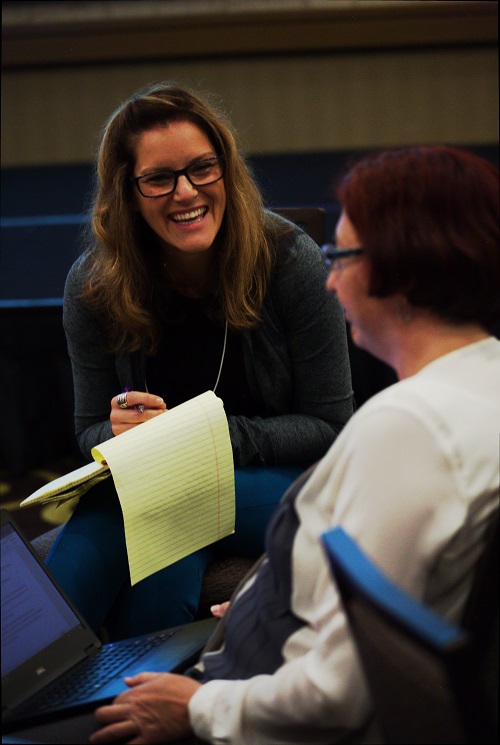 'Focal' because they focus on the very foundations, or the central ideas, in a rich conception of critical thinking. Each Focal Session targets one or more essential concepts or sets of principles in critical thinking, often in connection with essential applications of critical thinking. Most Focal Sessions are appropriate for both new and returning attendees, while a few are for those who have worked with us before; these will plainly read, 'For Returning Attendees' in their titles.
'Focal' because they focus on the very foundations, or the central ideas, in a rich conception of critical thinking. Each Focal Session targets one or more essential concepts or sets of principles in critical thinking, often in connection with essential applications of critical thinking. Most Focal Sessions are appropriate for both new and returning attendees, while a few are for those who have worked with us before; these will plainly read, 'For Returning Attendees' in their titles.
In some instances, several Focal Sessions take place at the same time; in other instances, a Focal Session will run at the same time as a Plenary Session (see the 'Plenary Sessions' description below). In either case, you will be asked to select one session to attend in each time slot.
Plenary Sessions
Plenary Sessions are appropriate for both new and returning attendees. There will be two such sessions this year, both occurring at the same time as more advanced Focal Sessions (attendees will be asked to choose which sessions they will attend while registering for the conference online). Each Plenary Session is led by a Senior Fellow of the Foundation for Critical Thinking. As with Focal Sessions, each Plenary Session deals with the foundations of critical thinking, as well as one or more important contextualizations of these foundations. These sessions focus on critical thinking principles applicable across teaching and learning, all fields of work, and indeed throughout human life. They are essential to living the examined life; therefore, all participants should find them enriching and enlightening.
Plenary Session: Understanding Critical Thinking Criteria as Essential to Educating the Mind in Any Field of Study and at Every Level… Dr. Gerald Nosich
Students learn content within any subject only to the extent that they learn to think through that subject, but they can’t just use their own thinking. They must use skilled, disciplined, reasonable, rational thinking – in other words, critical thinking. To do this, they need consistent practice over time in taking important ideas and following out their 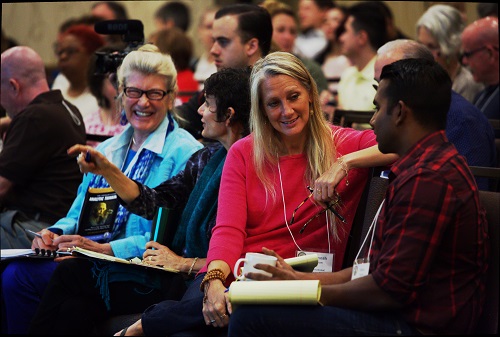 implications, in integrating ideas, and in questioning them when it makes sense. They need consistent practice in applying intellectual standards to thought as they reason through problems and issues within academic disciplines. They need to start with essential intellectual standards, then apply them over and over again to problems and issues as they think through content. In short, they can’t just learn about critical thinking in an abstract way; they need to apply it to their learning (and, ultimately, to every domain of human life).
implications, in integrating ideas, and in questioning them when it makes sense. They need consistent practice in applying intellectual standards to thought as they reason through problems and issues within academic disciplines. They need to start with essential intellectual standards, then apply them over and over again to problems and issues as they think through content. In short, they can’t just learn about critical thinking in an abstract way; they need to apply it to their learning (and, ultimately, to every domain of human life).
This plenary session, led by one of the world’s leading authorities on critical thinking, focuses on the understanding that to become a skilled learner is to become a self-directed, self-disciplined, self-monitored, and self-corrective thinker, one who has given assent to rigorous standards of thought and mindful command of their use. Skilled learning of a discipline requires that one respect the power of it, as well as its – and one’s own – historical and human limitations.
Focal Session for Returning Attendees: Understanding the Importance of Dialogical and Dialectical Reasoning in Human Life, and How They Are Essential to Advancing Intellectual Character… Ms. Carmen Polka
When people discuss their ideas, beliefs, or points of view with one another; when people role-play the thinking of others; when people listen carefully to the thoughts of others and try to make sense of them; when people must arrange their thoughts, whether orally or in writing, in such a fashion as to be understood by others – they are reasoning dialogically.
When, as the result of a trial, a juror comes to a verdict of guilty or innocent; when, as a result of a political debate, a citizen decides to vote for one candidate or another; when, as a result of hearing various sides of an argument, one becomes persuaded that one side is more justified and accurate than the others – one is reasoning dialectically.
Dialogical and dialectical thinking involve dialogue or extended exchange between different points of view or 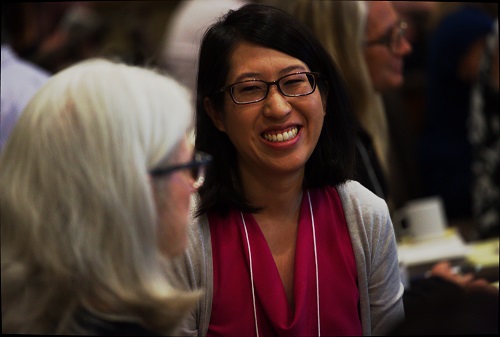 frames of reference. Both are multilogical (involving many logics) rather than monological (involving only one logic) because in both cases there is more than one line of reasoning to consider, more than one ‘logic’ being formulated. Dialogue becomes dialectical when ideas or reasonings come into conflict with each other and we need to assess their various strengths and weaknesses.
frames of reference. Both are multilogical (involving many logics) rather than monological (involving only one logic) because in both cases there is more than one line of reasoning to consider, more than one ‘logic’ being formulated. Dialogue becomes dialectical when ideas or reasonings come into conflict with each other and we need to assess their various strengths and weaknesses.
Teaching Students How to Study and Learn: Elementary Through Secondary Education… Ms. Carmen Polka
Bringing critical thinking into the classroom entails understanding the concepts and principles embedded in critical thinking, then applying these concepts throughout the curriculum. It means developing powerful strategies that emerge when we take critical thinking seriously as a means for cultivating the intellects of our students at all levels.
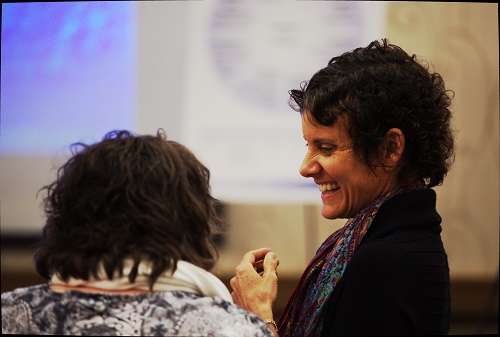 In this session, we will focus on strategies for engaging the minds of all students throughout the K-12 educational experience using common critical thinking language. These strategies are powerful and useful, because each is a way to routinely engage students in thinking about what they are trying to learn as they are learning. Each one approaches students as thinkers who need to learn to reason their way through ideas using their best thinking if they are to realize their capacities as developing persons. These strategies offer students methods for appropriately analyzing and assessing the ideas they are exposed to in the schooling process, and suggest ways of teaching students how to do the (often) hard work of learning. Each critical thinking process represents a shift of responsibility for learning from teacher to student, which is necessary if students are to take command of their minds.
In this session, we will focus on strategies for engaging the minds of all students throughout the K-12 educational experience using common critical thinking language. These strategies are powerful and useful, because each is a way to routinely engage students in thinking about what they are trying to learn as they are learning. Each one approaches students as thinkers who need to learn to reason their way through ideas using their best thinking if they are to realize their capacities as developing persons. These strategies offer students methods for appropriately analyzing and assessing the ideas they are exposed to in the schooling process, and suggest ways of teaching students how to do the (often) hard work of learning. Each critical thinking process represents a shift of responsibility for learning from teacher to student, which is necessary if students are to take command of their minds.
Placing Critical Thinking at the Core of Higher Education… Dr. Gerald Nosich
A key insight into content, and into thinking, is that all content represents a distinctive mode of thinking. Math becomes more intelligible as one learns to think mathematically. Biology becomes more intelligible as one learns to think biologically. History becomes more intelligible as one learns to think historically. This is true because all subjects are generated by thinking, organized by thinking, analyzed by thinking, synthesized by thinking, expressed by thinking, evaluated by thinking, restructured by thinking, maintained by thinking, transformed by thinking, learned by thinking, understood by thinking, and applied by thinking. If you try to take the thinking out of content, you have only empty words remaining, for it is thinking itself, on the part of the student, that gives life to content.
Learning a unique system of ideas is the key to learning any content whatsoever. In this session, we will explore the intimate relationship between content and thinking, and will argue for the importance of placing critical thinking concepts and principles at the very heart of teaching and learning in higher education.
Using Tools of Critical Thinking to Improve Analysis in Business and Government... Dr. Paul Bankes
Can we deal with incessant, accelerating change and complexity without revolutionizing our thinking? Traditionally, our thinking has been designed for routine, habit, and rule-bound procedures. Not long ago, we learned how to do our jobs, and then we used what we learned over and over in performing those jobs. But the problems we now face, and will increasingly face, require a radically different form of thinking: thinking that is more complex, more adaptable, and more sensitive to divergent points of view. The world in which we now live requires that we continually relearn, that we routinely rethink our decisions, and that we regularly reevaluate the way we work and live. In short, there is a new world facing us – one in which the power of the mind to command itself, to regularly engage in self-analysis, will increasingly determine the quality of our work, the quality of our lives, and perhaps our very survival.
As you work through this session, you will begin to understand some of the most fundamental concepts critical 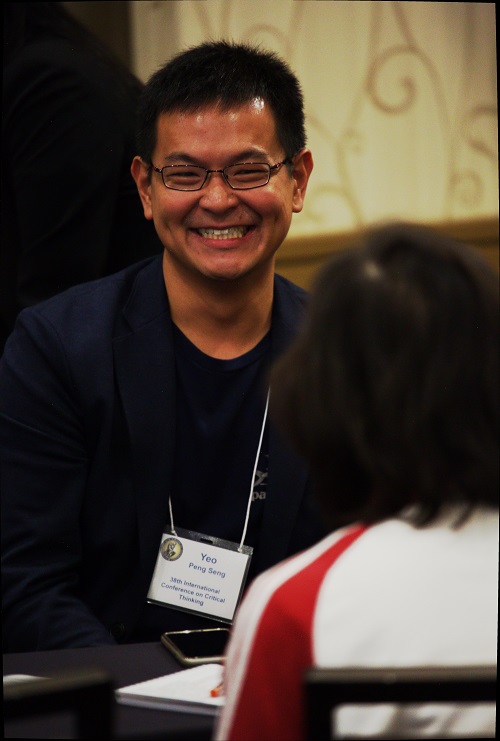 thinkers use on a daily basis, for it is through analyzing thinking that critical thinking occurs. To analyze thinking, we must be able to take it apart and scrutinize how we are using each part. When we clearly understand the parts of thinking (or elements of reasoning), and we begin to use them explicitly in our thinking on a daily basis, the quality of our work significantly improves.
thinkers use on a daily basis, for it is through analyzing thinking that critical thinking occurs. To analyze thinking, we must be able to take it apart and scrutinize how we are using each part. When we clearly understand the parts of thinking (or elements of reasoning), and we begin to use them explicitly in our thinking on a daily basis, the quality of our work significantly improves.
This session will help business, government, and education leaders:
Advanced Session: Pursuing Your Questions at the Next Level… Dr. Linda Elder
Most people who begin to learn the tools of critical thinking stop learning before they have a chance to really internalize, and therefore use, these intellectual tools. However, a few go on to take the theory and application of critical thinking to deeper levels. This session is designed for conference attendees who have worked with us before, at previous conferences or at their institutions in professional development, and are ready to go further through pursuing answers to their own questions.
Thinking is driven by questions. The best thinkers generate and pursue deep questions that lead them to fruitful ways of thinking and higher ways of living. This session, led by an international authority on critical thinking today, will focus on your deeper questions. Dr. Elder will help you develop improved lines of inquiry so you can explore, at a more advanced level, the concepts and principles embedded in a robust conception of critical thinking. Be prepared to articulate and pursue your important questions.
Illuminating for Students the Fundamental and Powerful Concepts Within Your Subject or Profession… Dr. Gerald Nosich
Concepts are ideas we use in thinking. They enable us to group things in our experience into different categories, classes, or divisions. They form the basis for the labels we give things in our minds. They represent the mental map (and meanings) we construct of the world, the map that tells us the way the world is. Through our concepts we define situations, events, relationships, and all other objects of our experience. All of our decisions depend on how we conceptualize things, and all subjects or disciplines are defined by their foundational 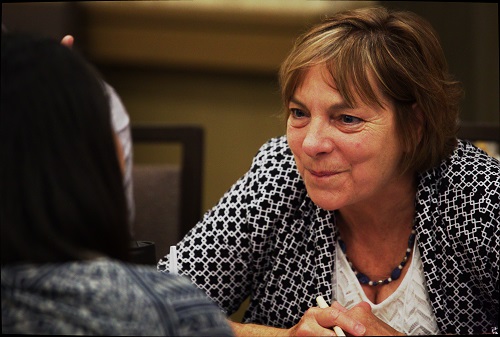 concepts. For instance, a fundamental concept in ecology is ecosystem, defined as a group of living things dependent on one another and living in a particular habitat. Ecologists study how differing ecosystems function and how they interrelate with other ecosystems. They are concerned with ecological succession - the natural pattern of change occurring within every ecosystem when natural processes are undisturbed. This pattern includes the birth, development, death, and then replacement of ecological communities. Ecologists have grouped communities into larger units called biomes, regions throughout the world classified according to physical features, including temperature, rainfall, and type of vegetation. Each of these is a seminal concept that cannot merely be seen (or memorized) as just one of many equally important details, but as fundamental for thinking one’s way through virtually any ecological issue, such as imbalance, energy, nutrients, population growth, diversity, habitat, competition, predation, parasitism, adaptation, coevolution, and conservation.
concepts. For instance, a fundamental concept in ecology is ecosystem, defined as a group of living things dependent on one another and living in a particular habitat. Ecologists study how differing ecosystems function and how they interrelate with other ecosystems. They are concerned with ecological succession - the natural pattern of change occurring within every ecosystem when natural processes are undisturbed. This pattern includes the birth, development, death, and then replacement of ecological communities. Ecologists have grouped communities into larger units called biomes, regions throughout the world classified according to physical features, including temperature, rainfall, and type of vegetation. Each of these is a seminal concept that cannot merely be seen (or memorized) as just one of many equally important details, but as fundamental for thinking one’s way through virtually any ecological issue, such as imbalance, energy, nutrients, population growth, diversity, habitat, competition, predation, parasitism, adaptation, coevolution, and conservation.
When we master foundational concepts at a deep level, we are able to use them to understand and function better within the world. Can you identify the fundamental concepts in your discipline or profession? Can you explain their role in thinking within your discipline or profession? How can you help students and/or colleagues take command of these concepts? Can your students give examples of how they are important in life? These are some of the questions to be explored in this session.
Understanding Robust Critical Thinking as Essential to Skilled Decision-Making and Problem-Solving in Business and Government... Dr. Paul Bankes
There are multiple dimensions of effective problem-solving and decision-making. For instance, by using one powerful set of critical thinking tools – the elements of reasoning – as our guide, we can identify at least nine dimensions that represent potential problems and opportunities for thought. These dimensions do not define a procedure that can be followed mindlessly or mechanically; rather, they presuppose good judgment and sound thinking in every dimension.
To be an effective and rational decision-maker:
1. Figure out, and regularly articulate, your most fundamental goals, purposes, and needs. Your decisions should help you remove obstacles and create opportunities to reach your goals, achieve your purposes, and satisfy your needs.
2. Whenever possible, take problems and decisions one by one. State the situation and formulate the alternatives as clearly and precisely as you can.
3. Study the circumstances surrounding the alternative possible decisions to make clear the kind of decision you are dealing with. Figure out what implications follow from the various possible alternatives before you. Differentiate decisions over which you have some control from decisions that seem forced on you. Concentrate your efforts on the most important decisions and those on which you can have the most impact.
4. Figure out what information you need, and actively seek that information.
5. Carefully analyze and interpret the information you collect, drawing what reasonable inferences you can.
6. Figure out your options for action. What can you do in the short term? In the long term? Recognize explicitly 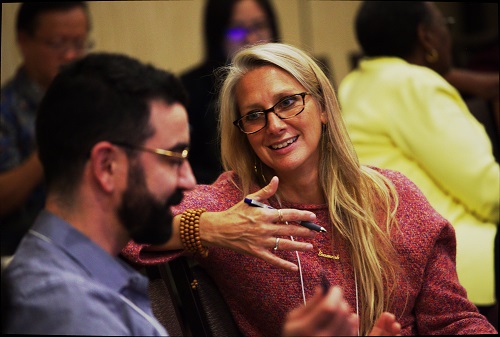 your limitations in money, time, power, etc.
your limitations in money, time, power, etc.
7. Evaluate your options in the situation, taking into account their advantages and disadvantages.
8. Adopt a strategic approach to the decision, and follow through on that strategy. This may involve direct action or a wait-and-see strategy that is carefully thought through.
9. When you act, monitor the implications of your actions as they begin to emerge. Be ready to revise your strategy at a moment's notice if the situation requires. Be prepared to shift your strategy, your analysis, your statement of the kind of decision, or all three as more information becomes available to you.
In this session, we will explore these abilities and how they can best be employed for effective problem-solving and decision-making in business, government, and all areas of administration.
Helping Your Students Learn to Reason Through Social, Political, and Environmental Issues Using the Tools of Critical Thinking… Ms. Carmen Polka and Ms. Rachael Collins
To what extent is it possible to realize and advance fairminded critical thinking in education, given today’s political and societal climates? Throughout the world, both in schools and in human societies more generally, significant political forces impede the cultivation of substantive critical thinking. This session will provide principles and strategies for helping students learn to reason through social, political, and environmental issues – issues often fraught with controversy, about which there is much unreliable “information” and irrational “commentary,” and which therefore demand more diligent application of critical thinking skills. Participants will think their way through several complex and important problems facing human societies today, using the tools of critical thinking
Teaching Students to Enjoy Writing Significant Papers in Your Courses… Dr. Gerald Nosich
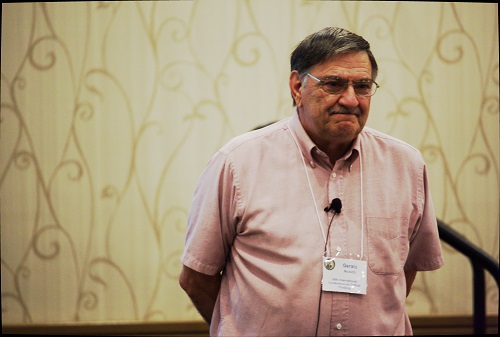 Educated persons skillfully, routinely engage in substantive writing. Substantive writing consists of focusing on a subject worth writing about, and then saying something worth saying about it. It also enhances our reading: whenever we read to acquire knowledge, we should write to take ownership of what we are reading. Furthermore, just as we must write to gain an initial understanding of a subject's primary ideas, so also must we write to begin thinking within the subject as a whole and making connections between ideas within and beyond it.
Educated persons skillfully, routinely engage in substantive writing. Substantive writing consists of focusing on a subject worth writing about, and then saying something worth saying about it. It also enhances our reading: whenever we read to acquire knowledge, we should write to take ownership of what we are reading. Furthermore, just as we must write to gain an initial understanding of a subject's primary ideas, so also must we write to begin thinking within the subject as a whole and making connections between ideas within and beyond it.
Quite remarkably, many students have never written in a substantive way. Instead, they have developed the habit of getting by – often while receiving passing or even high marks from their instructors – with superficial and impressionistic writing which only obscures the purpose of writing itself. The lack of connection between the writing assignments students complete and the way in which writing can be used to enrich their learning and lives can leave them resistant to, or dreadful of, their next assigned paper.
This session will explore ways of developing student abilities in substantive writing as a means for fulfilling, deep learning, which should also be enjoyable as an interrelated set of skills.
Close Reading as Essential to Your Students' Future… Ms. Carmen Polka
Educated persons are skilled at, and routinely engage in, close reading. When reading, they seek to learn from texts. They generate questions as they read, and they seek answers to those questions by reading widely and skillfully. In short, they seek to become better educated through reading. They do this through the process of intellectually interacting with the texts they read, while they are reading. They come to understand what they read by paraphrasing, elaborating, exemplifying, and illustrating it. They make connections as they read. They evaluate as they read. They bring important ideas into their thinking as they read.
Many of our students have never read a text closely. Instead, they have developed the habit of skirting by with superficial and impressionistic reading. This session will therefore explore basic, foundational processes for developing student skills in close reading. The aim is for these processes to become internalized and used throughout life as powerful tools for continual development.
Bringing Critical Thinking Across the Institution Through Long-Term Commitment and the Use of Best Professional Development Practices… Dr. Paul Bankes
Critical thinking, deeply understood, provides a rich set of concepts that enable us to think our way through any subject or discipline, as well as through any problem or issue. With a substantive concept of critical thinking clearly in mind, we begin to see the pressing need for a staff development program that fosters critical thinking within and 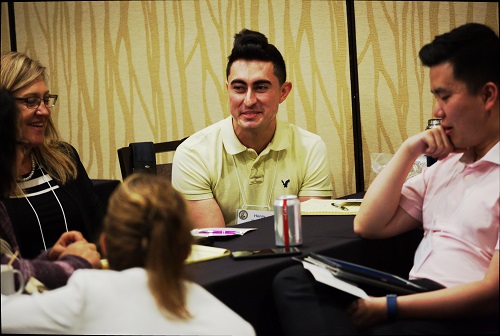 across the curriculum. As we come to understand a substantive concept of critical thinking, we are able to follow out its implications in designing a professional development program. By means of it, we begin to see important implications for every part of the institution — redesigning policies; providing administrative support for critical thinking; rethinking the mission; coordinating and providing faculty workshops in critical thinking; redefining faculty as learners as well as teachers; and assessing students, faculty, and the institution as a whole in terms of critical thinking abilities and traits. We then realize that robust critical thinking should be the guiding force for all of our educational efforts.
across the curriculum. As we come to understand a substantive concept of critical thinking, we are able to follow out its implications in designing a professional development program. By means of it, we begin to see important implications for every part of the institution — redesigning policies; providing administrative support for critical thinking; rethinking the mission; coordinating and providing faculty workshops in critical thinking; redefining faculty as learners as well as teachers; and assessing students, faculty, and the institution as a whole in terms of critical thinking abilities and traits. We then realize that robust critical thinking should be the guiding force for all of our educational efforts.
This session focuses on the importance of placing critical thinking foundations at the core of teaching and learning at all levels of the institution, and presents a professional development model that can provide the vehicle for deep change across the institution.
Critical Thinking and Classical Education: How the Two Are Intertwined and How Both Are Essential to the Educated Person… Dr. Linda Elder
One way of deepening our understanding of critical thinking and its role in history is to routinely and systematically interrelate explicit critical thinking concepts and principles with transformative ideas developed by deep thinkers throughout history. Many students have no real understanding of the important and essential ideas that have been developed by significant thinkers in history, nor do most students know how to access or assess classic texts. In this session, we will consider the works of a few distinguished thinkers throughout history and discuss how these thoughts interrelate, as well as how they connect with the conceptual tools in critical thinking.
Plenary Session: Fostering Emotional Intelligence in Teaching and Learning and Throughout Human Societies… Dr. Linda Elder
Critical thinking provides the crucial link between intelligence and emotions in the ‘emotionally intelligent’ person. It is the only plausible vehicle by means of which we can bring intelligence to bear upon our emotional lives, and enables us to take active command of not only our thoughts, but our emotions and desires as well. Hence, neither teaching nor learning can afford to disregard the emotional dimension of the mind.
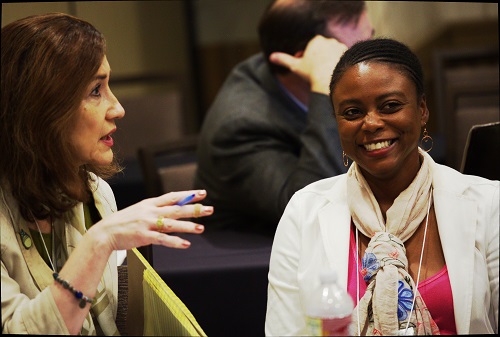 If we are concerned with developing our rationality in order to improve our lives, we must understand the powerful role that both emotions and thoughts play in our minds. We must understand the ways in which affect and cognition influence one another in determining both our outlook on life and our behavior. Most importantly, we must come to terms with those truths about the human mind that enable us to begin the process of taking charge of our minds: that thoughts and emotions are inextricably bound, that we have both irrational and rational tendencies, that our inner conflicts are never best understood as a simple matter between emotion and reason, that self-command of mind requires both extended education and self-discipline, that our fullest rational development is dependent on the development of rational affect, and that to bring intelligence to bear upon emotions, we must take charge of the thinking underlying those emotions.
If we are concerned with developing our rationality in order to improve our lives, we must understand the powerful role that both emotions and thoughts play in our minds. We must understand the ways in which affect and cognition influence one another in determining both our outlook on life and our behavior. Most importantly, we must come to terms with those truths about the human mind that enable us to begin the process of taking charge of our minds: that thoughts and emotions are inextricably bound, that we have both irrational and rational tendencies, that our inner conflicts are never best understood as a simple matter between emotion and reason, that self-command of mind requires both extended education and self-discipline, that our fullest rational development is dependent on the development of rational affect, and that to bring intelligence to bear upon emotions, we must take charge of the thinking underlying those emotions.
Focal Session for Advanced Attendees: Sharing Your Insights from Years in Working with the Paul-Elder Framework… Dr. Gerald Nosich
It Is one thing to begin learning critical thinking, and another thing to commit to internalizing it through years of application. Those who do the latter are rare, but our annual international conference offers returning, committed delegates a special opportunity to connect, to discuss deepening knowledge on how best to use the tools of criticality to reach students or others we work with, and to commiserate and empathize with one another on our mixed experiences in both our own learning and our interactions with others.
This session is designed for those conference attendees who have worked with us before in some capacity – at prior conferences or academies, at their institutions in professional development workshops, through our online courses, etc. – and who would like to share the insights they’ve developed through years of working with the Paul-Elder Framework, under the guidance of Dr. Nosich, who will add his breadth and depth of experience.
Helping Students Come to Terms with Their Bad Habits that Impede Learning… Ms. Carmen Polka
Students do not come to us as blank slates. They come to us with an established, but still developing, worldview. This worldview has unfortunately emerged from a largely impoverished world culture that tends not to highlight problems in thinking, nor to offer substantive approaches to those problems. Most students have no sense that within each of us are self-defeating attitudes and behavior, nor that many of these attitudes and behaviors are habitual. Most students have little understanding of how their bad habits of thought affect their learning, and hence their long-term futures. It is therefore important for students to deeply explore and probe the habits of mind that impede their learning. For instance, it is important for students to see that they, like all people, are often intellectually arrogant, and that this tendency gets in the way of their learning. It is important for students to see that they, like all people, often fail to persevere through difficulties when learning complex ideas – and that this tendency also gets in the way of their learning. It is important, in short, for students to understand the general problems in thinking experienced by all humans that lead to self-defeating attitudes and behaviors. Students can then use these understandings to uncover their own particular dysfunctional patterns of thought.
This session, then, will focus on helping students understand the bad habits of thought common to all humans, so they can begin to see how their own habitual attitudes and behaviors serve as formidable barriers to self-development and self-realization.
Critical Thinking as Essential to Reasoning Through Ethical Issues… Dr. Linda Elder
Few have thought much about the difficulty of getting ethically relevant facts about the world, few are skilled in tracing the implications of the facts they do have, and few can identify their own moral contradictions or clearly  distinguish their self-interest and egocentric desires from what is genuinely ethical. Few have thought deeply about their own ethical feelings and judgments, have tied these judgments together into a coherent ethical perspective, or have mastered the complexities of ethical reasoning. As a result, everyday ethical judgments are often a subtle mixture of pseudo- and genuine morality, ethical insight and moral prejudice, ethical truth and moral hypocrisy.
distinguish their self-interest and egocentric desires from what is genuinely ethical. Few have thought deeply about their own ethical feelings and judgments, have tied these judgments together into a coherent ethical perspective, or have mastered the complexities of ethical reasoning. As a result, everyday ethical judgments are often a subtle mixture of pseudo- and genuine morality, ethical insight and moral prejudice, ethical truth and moral hypocrisy.
The proper role of ethical reasoning is to highlight acts of two kinds: those that enhance the well-being of others, and those that harm or diminish the well-being of others. Developing one’s ethical reasoning abilities is crucial, because there is in human nature a strong tendency toward egotism, prejudice, self-justification, and self-deception. These tendencies are exacerbated by powerful sociocentric cultural influences that shape our lives – not the least of which is the mass media. These innate tendencies can be actively combated only through the systematic cultivation of fairminded critical thinking. In other words, ethical questions must be answered by the same means as all questions of judgment: by using explicit tools of reasoning to analyze information and ideas, and to evaluate them for their accuracy, precision, breadth, depth, fairness, and so forth.
This session will illuminate ethical reasoning as distinct from other forms of reasoning with which it is often confused – namely, social conventions and taboos, religious belief systems, and the law. With this set of distinctions clearly in mind, students are able to determine at any given time whether and to what extent they are dealing with any one of them (which is necessary for properly reasoning through the question), and they will be better able to distinguish ethical questions from other types of questions with which they are often jumbled.
Socratic Questioning Through the Tools of Critical Thinking… Dr. Gerald Nosich
Socratic questioning is disciplined questioning that can be used to pursue thought in many directions and for many purposes, including exploring complex ideas, getting to the truth of things, opening up issues and problems, uncovering assumptions, analyzing concepts, distinguishing what we know from what we don't know, and following out logical implications of thought. The key to distinguishing Socratic questioning from questioning per se is that Socratic questioning is systematic, disciplined, and deep; it usually focuses on foundational concepts, principles, theories, issues, or problems.
Teachers, students, professionals, government officials, and, indeed, anyone interested in probing thinking at a deep level should become skilled in constructing Socratic questions and engaging in Socratic dialogue. The art of Socratic questioning is intimately connected with critical thinking, because the art of questioning is indispensable to excellence of thought. Both critical thinking and Socratic questioning share a common end. Critical thinking provides the conceptual tools for understanding how the mind functions in its pursuit of meaning and truth; Socratic questioning employs those tools in framing questions essential to the pursuit of meaning and truth.
This session will introduce the methodology of Socratic dialogue and its relationship with the language and tools of critical thinking, and will be interactive as participants briefly practice Socratic questioning using the foundations of critical thinking.
Cultivating Intellectual Character in Business and Government for a More Rational World… Dr. Paul Bankes
It is possible to develop as a thinker, and yet not to develop as a fairminded thinker. It is possible to learn to use one’s mental skills in a narrow, self-serving way, and many highly skilled thinkers do just that. Think of politicians, for example, who manipulate people through smooth (fallacious) talk, who promise what they have no intention of delivering, and who say whatever they need to maintain their positions of power and prestige. In a sense, these 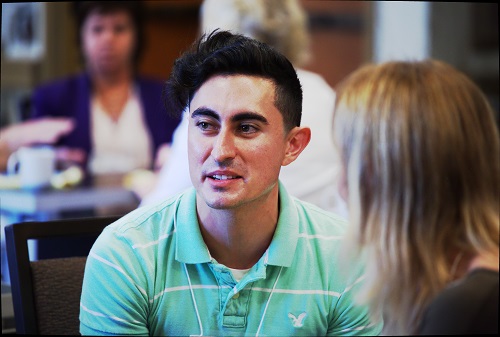 people are skilled thinkers because their thinking enables them to get what they want. But the best thinkers do not pursue selfish goals. They do not seek to manipulate others. They strive to be fairminded, even when it means they have to give something up in the process. They recognize that the mind is not naturally fair, but selfish. And they recognize that to be fairminded, they also must develop specific traits of mind – traits such as intellectual humility, intellectual integrity, intellectual courage, intellectual autonomy, intellectual empathy, intellectual perseverance, and confidence in reason.
people are skilled thinkers because their thinking enables them to get what they want. But the best thinkers do not pursue selfish goals. They do not seek to manipulate others. They strive to be fairminded, even when it means they have to give something up in the process. They recognize that the mind is not naturally fair, but selfish. And they recognize that to be fairminded, they also must develop specific traits of mind – traits such as intellectual humility, intellectual integrity, intellectual courage, intellectual autonomy, intellectual empathy, intellectual perseverance, and confidence in reason.
In this session, we juxtapose the fairminded critical thinker with the selfish thinker, and we develop our understanding of how all the intellectual virtues are essential to strong-sense, or ethical, critical thinking. If you are to cultivate fairminded critical thinking within your organization, you will first need a reasonable conception of it, and then a plan for bringing it to your circle of influence. This session, therefore, will enhance your understanding of the intellectual virtues and why they are essential to fairminded critical societies, businesses, and government entities; this session will also help you develop a plan for implementing fairminded critical thinking within your work community.